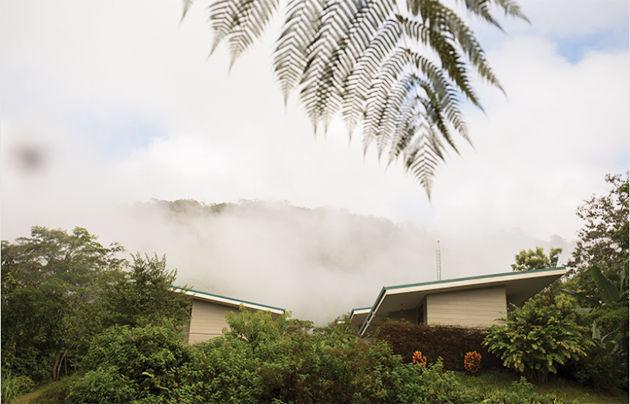In the first two weeks of January, 32 undergraduate and graduate students ventured to the Costa Rican rainforest for a winter study abroad program that focused on conservation-based initiatives at the Soltis Center.
Students accepted to the study abroad program specialize in agriculture and conservation. Faculty leader and agriculture professor Gary Wingenbach specifically designed the course to share the importance of conservation of natural resources with A&M students.
Soltis Center in San Isidro de Penas Blancas — the Costa Rican rainforest — aims to support Texas A&M research, education and outreach efforts in Costa Rica and the remaining Central American region. The facility also strives to promote sustainability and conservation of tropical biodiversity, according to an online statement by Eugenio Gonzalez, Soltis Center Director.
Along with diverse organic farms, among the students’ destinations was Nectandra, a preservation center established in 1999 that promotes the conservation and restoration of the cloud forest ecosystems of Costa Rica, which are comprised of 2,000 species of trees, 2,000 orchids and 20,000 butterflies and moths.
Through public education, scientific research and watershed stewardship, Nectandra teaches the importance of cloud forest conservation. Through population growth, climate change and uncontrolled land use, cloud forest regions have drastically diminished, said Evelyn Lennette, Nectandra director.
“Nature provides us with diverse services, free of charge,” said Luis Villa, Nectandra Institute administrator. “If you were to put a price tag on it, you’re talking about billions and billions of dollars, but [nature] doesn’t charge us. So if we protect nature, we’re protecting our own well-being.”
Lennette said conservation efforts are most effective on an individual level.
“Conservation should not be institutionalized,” Lennette said. “Every single individual can do something. We shouldn’t depend on government or big, large organizations to do the conservation.”
Villa said conservation efforts are important in Costa Rica specifically because of the country’s high biodiversity and dependence on natural, ecological and environmental services.
“I’ve discovered how dependent we are on nature,” Villa said. “I think all of us have a sense of it from the time we’re little, but as you grow and pay attention to some of the challenges we’re facing as a global society, you realize just how dependent we are.”
Proper management of natural resources is vital to conservation for future generations, Wingenbach said.
“It is so important to practice conservation to preserve our earth. In Costa Rica, I saw the importance of rainforests, cloud forests and organic farms, because they preserve wildlife and create food for us,” said program attendee Julianne Percy, agricultural communications and journalism senior. “It is important for us to take care of our land so we can continue to make healthy food and keep our earth stable so it can take care of us in the future.”
Wingenbach said it is difficult to discuss these issues in a classroom environment, so he hopes to create more opportunities for Aggies to travel abroad to share in the experience.
“It’s really important for us to see how our actions and decisions in one part of the world, whether that be industrial production that can cause harm to the natural environment, also affect the people living in Costa Rica,” Wingenbach said. “If we all did a better job, maybe we can have more properly managed natural resources.”
Aggies in the rainforest
January 17, 2017
Photo by Provided
Costa Rica Conservation
0
Donate to The Battalion
$1815
$5000
Contributed
Our Goal
Your donation will support the student journalists of Texas A&M University - College Station. Your contribution will allow us to purchase equipment and cover our annual website hosting costs, in addition to paying freelance staffers for their work, travel costs for coverage and more!
More to Discover










